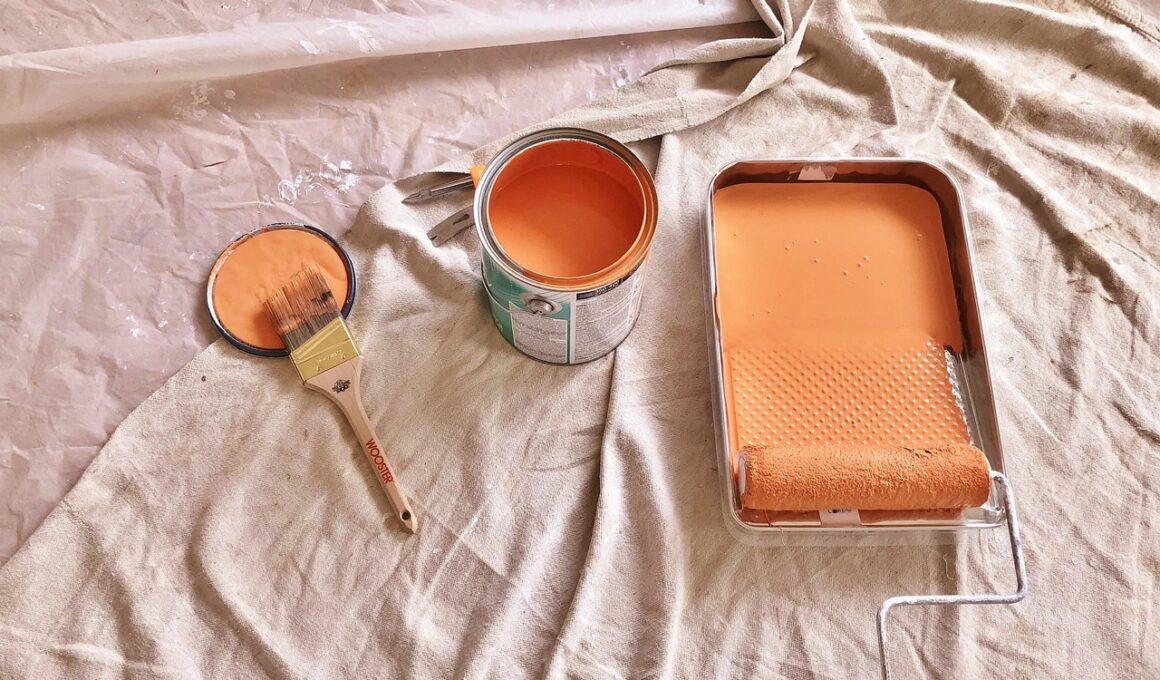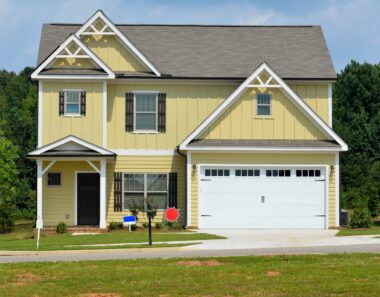Deducting Home Improvement Costs: What’s Allowed?
Homeownership can be both rewarding and costly. One area where owners can benefit financially is through tax deductions for home improvements. However, not all upgrades qualify for deductions. To be deductible, the improvement needs to significantly increase the value of your home or extend its useful life. Upgrades such as adding a new roof, installing energy-efficient windows, or building an addition may fall under this category. Minor repairs, however, do not generally qualify for tax deductions. Understanding what qualifies as a significant improvement is crucial for maximizing tax benefits. Documentation is also essential; keeping records of expenses related to renovations will help during tax season. Homeowners should consult the IRS guidelines or a tax professional to better understand what is eligible for deduction. This knowledge is vital, as it may help in reducing the taxable income on your annual returns. The process can be complex, but taking the right steps can lead to savings that offset some renovation costs. Therefore, being informed can save you a considerable amount come tax time.
When discussing deductible home improvements, it’s essential to know that cosmetic upgrades generally don’t qualify. Cosmetic changes like painting or new flooring might enhance the aesthetics of a home but typically don’t offer meaningful improvements in terms of value. Tax deductions for home improvement will mainly focus on enhancements that increase efficiency or prolong the home’s longevity. For instance, a new HVAC system may lower energy costs and qualify for a tax deduction. Conversely, simply changing paint colors or replacing outdated carpets will not fulfill the criteria for deduction. Homeowners should be cautious with their renovations and always prioritize projects that can provide potential tax benefits. Extensive renovations can yield significant benefits not only for personal enjoyment but also for financial relief down the road. Homeowners should keep in mind that improvements made before selling the house can also influence the home’s cost basis. A higher cost basis may equate to lower taxable gains on the sale. Tax deduction knowledge can empower owners to take action towards valuable improvements.
Cost Segregation Study Benefits
One effective strategy is conducting a cost segregation study. This study separates the costs of various components of a property. It enables homeowners to identify and separate the costs of qualified improvements. Doing so can lead to accelerated depreciation deductions. It is beneficial for rental properties and even for primary homes in certain scenarios. Engaging professionals in this study can help homeowners uncover various aspects of their property, which they may not initially consider deductible. The benefits can be significant, allowing homeowners to maximize their tax savings legally. Besides renovations, repairs may be categorized separately, which could yield additional deductions. Understanding the difference between improvements and repairs can be critical to tax planning success. Repairs restore items to their previous or ordinary condition without enhancing the property’s value. Improvements, however, add value or prolong life. Knowing how to classify these deductions is crucial for accurate filing. Overall, investing time in exploring cost segregation can uncover great advantages for tax savings on renovation projects.
While it is critical to know what qualifies for tax deductions, it’s equally essential to understand the timeline associated with these improvements. Generally, homeowners must deduct the expenses in the year that they incur them. This can be tricky, especially if improvements span multiple years. Those making significant renovations should categorize the expenses correctly. Documenting the receipt of completed improvements keeps track of expenses and timelines, which helps during tax filing. On the other hand, homeowners engaging in ongoing renovations may also want to note the cumulative expenses. This ensures that taxpayers are prepared to claim deductions when the time comes. Moreover, homeowners should keep in mind that mixing repairs with improvements can complicate the situation. Clear communication with tax professionals can clarify any confusion about timing and categorization. Another important element is to keep records of upgrade-related decisions since you may need to justify eligibility during tax assessments. Having records also helps when determining the adjustments needed during the sale of the property. Ultimately, timing and documentation significantly impact permitted deductions.
Energy Efficiency Improvements
Another significant area for homeowners to explore is energy-efficient upgrades. Enhanced energy efficiency can lead not only to savings on utility bills but also tax benefits. The IRS offers tax credits for energy-efficient home improvements, such as solar panels or insulation upgrades. Homeowners interested in going green should review the available credits and ensure that they are taking full advantage of these deductions. Additionally, some states also offer incentives for energy-saving upgrades. Homeowners should research local state laws. Often, energy-efficient installations qualify for both federal and state tax incentives. Homeowners who prioritize these installations may find the savings rewarding. However, properties must meet the necessary criteria to take advantage of these benefits. Understanding the rules could lead to significant tax relativity on energy-saving projects. An increasing number of energy-efficient technologies have come to market. By investing in these technologies, homeowners position themselves strategically. Tax credits can be substantial, making improvements financially attractive. Therefore, energy-efficient upgrades aren’t just good for the environment; they can also enhance financial well-being.
Tax implications can vary depending on whether the home is owned as a primary residence or an investment property. For those who rent out a portion of their home or the entire property, the rules might differ. Homeowners should pay particular attention to how their ownership status affects tax benefits. Often, landlords can deduct the full cost of improvements deemed necessary for the rental property. However, for personal residences, the rules are much more stringent. The nature of the improvement also plays a crucial role. Personal residences typically limit tax deductions based on overarching residential investment regulations. Hence, property owners in investment scenarios often benefit more significantly from tax deductions related to improvements. It’s crucial to consult with qualified tax professionals to navigate this fine line. Understanding differences can optimize filing strategies. Renovations may significantly impact taxes in the long run. Researching and adapting to the regulations for personal versus rental properties can bring about favorable financial outcomes. Proper planning ensures homeowners avoid pitfalls and maximize potential deductions.
Conclusion and Future Considerations
Finally, as tax regulations continue to change, homeowners should stay informed about potential updates. Legislative changes may affect what qualifies for tax deductions each year. Regularly consulting with tax professionals can provide insights into evolving rules. These insights can aid homeowners in planning their improvements effectively. Keeping abreast of tax-related developments can prevent missed opportunities. As more individuals enter homeownership, understanding the tax ramifications of renovations becomes increasingly relevant. Home improvement costs can be daunting, but they can also offer avenues for potential financial relief. Diligent tracking of expenses and strategic planning ensures that homeowners take advantage of available benefits. Homeownership is indeed rewarding, but it comes with financial considerations. By maintaining knowledge of deductible expenses, homeowners can confidently navigate through potential tax savings. In conclusion, tax planning for homeownership remains a critical discussion. Properly managing home improvements can yield significant benefits, reducing overall tax liability and increasing the value of the property.
Personal experiences in managing home improvement costs can also be invaluable. Homeowners may find that sharing personal anecdotes about successful deductions can greatly help their tax strategies. Learning from others’ experiences can foster better decision-making during home renovations. Networking with fellow homeowners can enhance knowledge-sharing, particularly insights related to deductible improvements. Many times, online forums and community groups serve as valuable resources for discussing practical experiences. They provide platforms for asking questions and receiving advice tailored to home improvement expenses. Such interactions can eliminate confusion regarding deductible costs, clarifying what is eligible. It’s always prudent to consult with experts for comprehensive understanding. Family and friends with experience in home renovations can offer helpful tips rooted in personal experience. This collective knowledge can guide homeowners in making informed decisions about which projects to undertake. Overall, connecting with a supportive community can enrich the homeowners’ experience. As they embark on their home improvement journey, learning from others can also save time and enhance cost-effectiveness. The journey of home improvement is shared, and insights gained from others can magnify the benefits.





